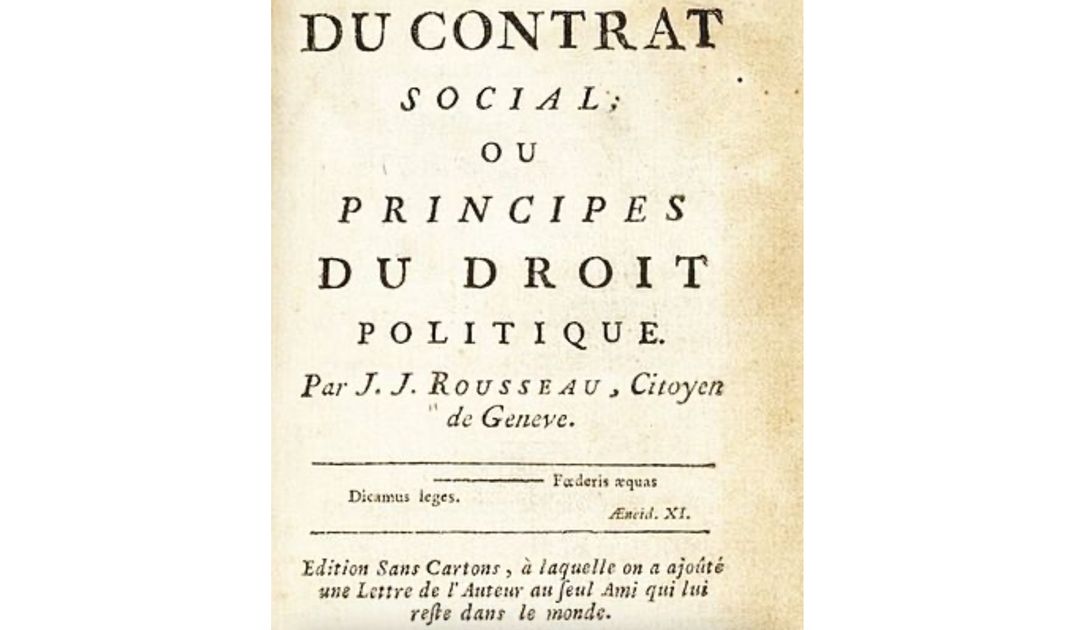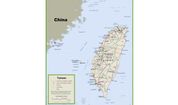Understanding Jean-Jacques Rousseau’s “The Social Contract” and other essays in XXI century

(commons.wikimedia.org)
A social transformation in Western Europe and Northern Europe is happening under the demand for social justice, equality and the complete abolition of the old American Protestant order. The protesters are demanding a new social order and, consequently, a new social contract, which can accommodate these social groups and communities, growing up from tiny minorities into a serious political force, able to destroy the old social and political order. Rousseau wrote that “The indispensable will of all members of the State is a general will; it is thanks to her that they are citizens and free,” but what happens when the “general will” does not respond to the new realities and new paradigm? Such a situation has occurred twice: at the end of the XVIII century (the French Revolution) and at the beginning of the XX century (the October Revolution). During both these events, the role of the ideas of Jean-Jacques Rousseau was indispensable and both the most prominent figures, Robespierre and Lenin, were admirers of this French philosopher. Therefore, it is important to think about Rousseau’s ideas once again. It was clear that America’s Social Contract was broken long before 2020 but it has recently become more evident and moreover has broken the Social Contract of the entire European Civilization. For this purpose, I would like to present the three main philosophical essays of Rousseau: “Discourse on the Arts and Sciences” (1750), “Discourse on the Origin and Basis of Inequality Among Men” (1755) and “The Social Contract” (1762).
Rousseau and the French Revolution
Jean-Jacques Rousseau, the “Philosopher of Geneva, was perhaps one of the most interesting philosophers of the Age of Enlightenment in France. Rousseau’s philosophical idea had a critical influence upon the development of European political and social thought. His contributions to the famous Encyclopédie about music and political theory sparked an intellectual and cognitive revolution in Europe. His ideas were especially influential for members of the “Jacobin Club” such as Robespierre, Fouché, Collot d’Herbois, Billaud-Varenne, Marat, Danton and Saint-Just. They cherished the ideas of Republicanism, a strong state, and the abolition of the last remnants of absolutism and feudalism. Maximilien Robespierre was the main and most influential disciple of Rousseau, infatuated with his ideas of Social Contract. He often quoted Rousseau (as did Kant, who actually remembered long citations from his books and had only one picture in his house, Rousseau’s). Robespierre in his Dedication to Jean-Jacques Rousseau (1789) wrote, “Divine man you have taught me to know myself.” Most important for us however are the premises which show the impact of the personality and ideas of Rousseau on the French Revolution, encapsulated in the following expression by Robespierre: “The Old Edifice has collapsed; the portico of a New Edifice has been built on its ruins and, thanks to you, I have been able to contribute my block of stone.”[1]Robespierre was a person who desired and dreamed about a truly happy human community, but everything culminated with the Reign of Terror.
As Lenin wrote, “we are for the Jacobins against the Girondins.” For him, the Girondins were an idealistic and bourgeois community that was not able to undertake the necessary measures against the old social order and peoples who represent this order. The heirs of the Girondins were the Mensheviks. The Bolsheviks were admirers of Robespierre and the Jacobins’ Reign of Terror. In Soviet Russia, they initiated their own Red Terror against the supporters of the old regime – using the Reign of Terror as a model. Both the Bolsheviks and the Jacobins wanted a “moral revolution” but in the end, they sowed death and sorrow. In the Soviet Union, it would be called radical Russoism in its Jacobin interpretation. The Social Contract was published in mass-circulation in 1938, without specifying a translator, as a kind of sacred text.
The birth of Modernity actually happened in the XVIII century precisely because of the Age of Enlightenment in France. The impact of Rousseau on Modernity is one of the most significant. In the XXI century, we are facing the death of Modernity: the death of the world we all know. The revolutions in America and France were successful attempts to make a new deal (a contract) that established a new social and political order.
In the XXI century, the peoples or at least some part of Western Civilization is demanding a new Social Contract as once the peoples of Europe and North America demanded a new system of social relations, both between people and between civil society and the rulers.
Before the examination of the idea of the Social Contract let me define this term: It is the concept or model of conduct of a social contract which implies that people will partially submit their sovereign rights in favor of the state “political organism” in order to ensure their interests through it and secure the “general interest” and social cohesion. A social contract means thereby an agreement reached by citizens on the rules and principles of public administration with the corresponding legal form. It merely means the legitimacy of government, dogmas in society, the political system and social structure.
The “Social Contract” treatise (1762)
In this treatise, Rousseau presented his main ideas regarding the societal dynamic in Europe. He was not alone in this direction, as there were previously two English philosophers, Thomas Hobbes and John Locke, who drew very different conclusions from the starting point of social contract theory. Hobbes defended authoritarian monarchy; Locke defended liberal monarchy, whereas Rousseau defended liberal republicanism. Thus, it is possible to conclude that the idea of the social contract is not merely about the political system and civil society, it is more of it. It is about the system of relationships between the different political and social actors and how this interaction is formed in a specific political system: democracy, republicanism or monarchy. I would add here that the social contact (when it is done by “agreement” usually after the revolution) forms a specific nature or atmosphere (ideology or paradigm) in the society. However, when the paradigm does not work as it worked for centuries and the structure of the society has tremendously changed, it is time for a new “social contract” or time to adapt to new realities. Moreover, it might be argued that the social contract has different levels from local societies to states and civilizations.
“Man is born free, but everywhere he is in chains” – this is the overarching philosophical dilemma for Rousseau. For him, the social order isn’t to be understood in terms of force; it is a sacred right on which all other rights are based, and it is not a natural phenomenon. It must be based on agreements between different social actors. If something impedes this freedom, Rousseau believes that people can return their freedom taken by injustice: “As long as a people is constrained to obey, it does well to obey; as soon as it can shake off the yoke, it does even better to shake it off. If its right to do so is challenged, it can answer that: it gets its liberty back by the same ‘right’—namely, force—that took it away in the first place.” The order which is established by force upon other people is illegitimate.
Rousseau does recognize the idea of God when he writes, “All power comes from God, I admit; but so does all sickness—are we then forbidden to send for the doctor?” Therefore he offers a rational solution, which is to be a “doctor” in this human world and construct it according to human “rationale”. He refuses to accept the quite common concept for our Eastern European region, that it is better to silently live in relative peace than in genuine freedom – “What do they gain if this peace is one of their miseries? You can live peacefully in a dungeon, but does that make it a good life?”
The primary goal of his book is to “find a form of association that will bring the whole common force to bear on defending and protecting each associate’s person and goods, doing this in such a way that each of them, while uniting himself with all, still obeys only himself and remains as free as before.” However, as we noticed in the previous chapter, the interpreters did not pay attention to this goal, but Rousseau’s concept of being “forced to be free” is much closer to the radical ideas of leftist groups. The ideas of collectivism are present in his writings because he is convinced that the “general will” of society overarches the interests of one person. It is, to some extent, an analogy to the rule of law. The Bolsheviks saw in this term nothing but the “dictatorship of the proletariat.” Georg Hegel saw exactly the same in the idea of the “general will.” It cannot be constant and it is changing and it tends to “equality.” He accepts that rulers can impose their commands as general wills, and they are becoming the “general wills” when the “universal silence should be taken to show the people’s consent.” If people do not revolt, thus, it seems to the ruler that everything is heading in the right direction.
The state weakens, the collective will does not work anymore, the voices of new ideas are stifled, and when private interests begin to outcry the collective, and small societies begin to influence large ones, then the general interest is perverted and meets its opponents; unanimity no longer reigns in voting; the common will is no longer the will of all; wrangling, disputes arise; and the fairest opinion is never accepted without contention. This is the end of the general will and time to begin searching for a new one. Finally, he writes, when the State, which is close to its death, continues to exist only thanks to one deceptive and empty form, when the social connection has been broken in all hearts, when the basest self-interest is brazenly disguised as the sacred name of the public good, then the common will grows dumb; everyone, guided by their secret motives, no longer speaks as citizens, as if the State never existed; and under the name of laws, unjust decrees are carried out by deceit with the aim of only private interests.
Why are the great Civilizations falling?
In his First Discourse essay A Discourse on the Moral Effects of the Arts and Sciences, Rousseau presents an original idea which was again entered into the mainstream. In 1749, the Academy of Dijon promised a prize for an essay responding to the question: “Has the restoration of the sciences and arts contributed to the purification of morals?” or, in other words, is the Age of Enlightenment bringing society to a new historical stage of happiness and social cohesion. The direct answer of Rousseau was straightforward: “No, it has not” – the arts and sciences corrupt human morality and derail the stable direction of civilization or the state. The Middle Ages are compared with primitive barbarism and the only thing that saves Europe is a “stupid Muslim”, as by conquering Constantinople, they made it possible to restore old knowledge in Europe. It was the exact revolution that Europe needed.
Rousseau writes, “The fall of the throne of Constantine brought to Italy the relics of ancient Greece; and with these precious spoils, France in turn was enriched. The sciences soon followed literature, and the art of thinking joined that of writing: an order which may seem strange, but is perhaps only too natural.” The renaissance of the arts and sciences brought an undeniably positive impact to the history of Europe, but concurrently it commenced the processes which corrupted and initiated the process of demoralization.
The reason for demoralization, according to Rousseau, was that people interrupted into the process of coexistence with nature and their bodies, becoming unhealthy – “A virtuous person is an athlete who loves to fight naked, he despises all these pathetic ornaments that constrain the manifestation of power, most of which were invented only to hide some ugliness.” To hide some ugliness, or how it remains to us – our civilization. Monotony and emptiness became an overwhelming feature of European society (high society). He predicts that there will be times when, “No man will grossly abuse his enemy, but he will slander him with skill. National hatreds will expand, but that will be for the love of one’s country.” Rousseau says without any hesitation that “our souls have become corrupted to the extent that our sciences and our arts have advanced towards perfection.”
Most interesting from a geopolitical angle is what he says about the great civilizations and countries in the light of what people are feeling even now in the XXI century. Looking at Egypt he says: “… the first school of the universe, that climate so fertile under a bronze sky, that celebrated country, which Sesostris left long ago to conquer the world. It became the mother of philosophy and fine arts, and, soon afterwards, was conquered by Cambyses, then the Greeks, Romans, Arabs, and finally the Turks”. He provides this striking example about Greece: “Look at Greece, once populated with heroes who twice vanquished Asia, once before Troy and then again in their own homeland. The early growth of literature had not yet carried corruption into the hearts of its inhabitants, but progress in the arts, the dissolution of morality, and the Macedonian yoke followed closely on one another’s heels, and Greece, always knowledgeable, always voluptuous, always enslaved, achieved nothing in its revolutions except changes in its masters. All the eloquence of Demosthenes could never reanimate a body which luxury and the arts had enervated.”
Rome had the same destiny when the rise of the arts and sciences also had a negative effect: “Rome, formerly the temple of virtue, became the theatre of crime, the disgrace of nations, and the toy of barbarians. This capital of the world eventually fell under the yoke which it had imposed on so many people, and the day of its fall was the day before one of its citizens was given the title of Arbiter of Good Taste.” Byzantium could not avoid the destiny of previous civilizations: “…its position seemed destined to be the capital of the whole world, that sanctuary for the sciences and arts forbidden in the rest of Europe, perhaps more through wisdom than barbarity? Everything that is most disgraceful in debauchery and corruption—treasons, assassinations, the blackest poisons, and the even more atrocious combination of all these crimes—that’s what makes up the fabric of the history of Constantinople.”
This bad fortune was not reserved for European civilizations. Rousseau presents bright examples of China and Persia. China is a great country, he writes: “There is in Asia an immense country where literary honors lead to the highest offices of state. If the sciences purified morals, if they taught men to shed their own blood for their country, if they inspired courage, the people of China would become wise, free, and invincible. But if there is no vice which does not rule over them, no crime unfamiliar to them, if neither the enlightenment of ministers, nor the alleged wisdom in the laws, nor the multitude of inhabitants of that vast empire was capable of keeping it safe from the ignorant and coarse yoke of the Tartars, what use have all these wise men been to them? What fruits has it reaped from all the honours lavished on them? Could it perhaps be the reward of being an enslaved and wicked people?”
Rousseau stresses that each of these civilizations had a historical stage when they were strong and rulers of the world. He gives examples of other peoples like the Scythians, the Germans etc. They were all mighty nations when they were poor and ignorant. The ideal example for Rousseau is Sparta – “the very heart of Greece that saw the emergence of that city as famous for its happy ignorance as for the wisdom of its laws, whose virtues seemed so much greater than those of men that it was a Republic of demi-gods rather than of men. O Sparta! How you eternally shame a vain doctrine! While the vices led along by the fine arts were introduced together with them in Athens, while a tyrant there collected with so much care the works of the prince of poets, you were chasing the arts, artists, the sciences, and learned men from your walls.” The dichotomy of historical direction for Rousseau is that one direction is the path of Athens and another is the path of Sparta.
It is possible to give more examples to readers, but space is limited. We see that Rousseau was a talented person and his philosophy had a tremendous impact on human history. In his Discourse on the Origin and Basis of Inequality among Men he argues that nature and humanity must always be nearby. It is a composition and only in a composition can human history evolve, but in the XXI century humanity denies nature as it is.
Rousseau for the XXI century: the age of the great social transformations
As mentioned earlier, Rousseau’s philosophy guided two of the greatest political revolutions in European history: the French Revolution in the XVIII century and the October Revolution in the XX century. In the 1990s there were quite popular ideas about postmodernism which was coming and would change humanity and its historical rhythm. In order to come to a new social-historical paradigm, first of all European civilization must adopt and incorporate or on the contrary reject new trends, concepts, movements, paradigms and ideologies. The last decade manifests to us that those communities, ideologies and paradigms which were minorities till the beginning of the XXI century are now mature and strong enough to challenge the old social edifice and in a perfect scenario destroy and build a new edifice. The following ideas and communities demand their true place in the new social and political world order:
- The ideas of feminism and “gender”. The concept of “women” is now a political term which demands for women an equal place in the new society;
- “marginalized orientations”;
- so-called “national minorities”;
- Transhumanism and ideas of Posthumanism which don’t see the human being as we all used to see and know it is now the rudiment of history. It is very close to the ideas of Friedrich Nietzsche, who believed that humans can be “crafted.”
- The economic and geopolitical rise of the East which is not ready to maintain remnants of the old geopolitical order which was built on the European foundations for Europeans, including White Russians.
- “sons and daughters” against “parents”. This is what we see in Western Europe and Northern America when the young generation is denying the old “privileged society” and building a new one;
- The racial and ethnic landscape of the West is changing and a new generation, partially with European roots and partially without them, demands a transformation of the old system of social relations which still exist;
- De-ethnicization and de-nationalization of the white population in the West. This is immediately changing the social paradigm; and
- The global proletariat which shares common values. This is a relatively new phenomenon which was cherished by the global culture and social media.
Finally the technological revolutions which have occurred within the last few decades, making their own impact on society and also demanding integration and adaptation into the new convoy of historical process. Sufficient parts of western society merely do not believe in the old order, the social contract which was set in previous centuries and now they are demanding a new social contract. They see that the old order does not include them, only excludes; The Old Edifice is collapsing; the portico of a New Edifice is being built on its ruins and thanks to Rousseau, Robespierre is able to contribute his block of stone.
[1] David P. Jordan “The Revolutionary Career of Maximilien Robespierre” University of Chicago Press, 1989 , p. 33






Trwa ładowanie...